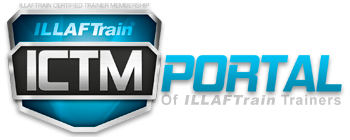Thinking Muscles - Improvement of Communication Level
Course id: 1170
Duration: 3 Day/ 5 H per day
introduction
Everyday you go through tens of dialogues and debates. Communication skills with others have become of the most important skills that you should possess. The third part of the "Thinking Muscles" Program presents to you many of the skills that help you to understand who is conversing with you and to evaluate his talk, and consequently to support your opinion.
Prerequisites
The participant does not need to have a certain specialization.Audience
The young boys and girls between 10 - 18 years old who seek to possess skills that support and activate their thinking.
The guardians who have the desire to enrich the thinking of their children and to develop their mental potentials.
The teachers who aim at affording benefit to their students and to raise their educational levels.
Objectives
At the end of the Course, each Trainee will become able to comprehend and apply a number of skills which help him to:
-
Develop the communication skills with others.
-
Discover the weak and strong points in dialogues.
-
Determine the information that support or does not support the dialogues.
-
Support and prove his opinion in many ways and styles.
-
Study the evidences and proofs regards kind, value, structure and use in the dialogues.
-
Determine the fruits of the dialogues and debates he takes part in.
Content
The First Day:
-
Introduction.
-
The ten muscles which are:
-
Checking and verifying the viewpoint of the counterpart and understanding it.
-
Knowing the kinds of the proofs and evidences, whether they are just an opinion or a truth.
-
Checking the value of the evidences regards their importance and the extent of their supporting the opinion they defend.
The Second Day:-
Evaluating the structure of the proofs, and knowing how to build up coherent evidences in structure.
-
Determining the relevant and non-relevant information in support of the subject.
-
Confirming the opinion through determining the statement and the reference.
-
Confirming the opinion through giving designation and judgment.
The Third Day:-
Confirming the opinion through distinguishing the exaggeration, disregard and
-
generalization.
-
Confirming the opinion through distinguishing the error and bias.
-
Determining the fruit from the debates and dialogues.
-
-
Conclusion.

